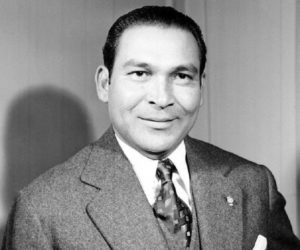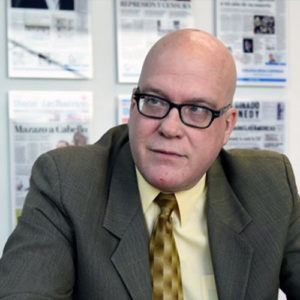CUBA INSIGHT
The Cuban Studies Institute Publications
Publications
Other Publications
Authors
Bits of Cuban History

Rubén Fulgencio Batista y Zaldívar (1901-1973)
President of Cuba, 1940-44 and 1952-58 and Cuban strong man from the Sergeants’ revolt of 1933 to the Revolution of 1959. Born

Yellow Fever (fiebre amarilla; vómito negro)
A mosquito-borne disease with high mortality whose urban form probably crossed the Atlantic through the African slave trade, yellow fever

Benjamin Sumner Welles (1892-1962)
United States career diplomat with wide Latin American experience, appointed assistant secretary of state by the Franklin Roosevelt administration in

Novelist and journalist from Pinar del Rio province, he was a teacher when he developed an interest in literature, publishing

Machadato. The Presidential term of Gerardo Machado y Morales
Gerardo Machado y Morales (1871-1939). President of Cuba, 1925-1933, was born in Santa Clara and spent his childhood in the

A December 1955 offshoot of the Federación Estudiantil Universitaria (FEU) at the University of Havana, the Revolutionary Directorate promoted an insurrectionary response

Independence War,1895-1898. (Guerra de Independencia)
Organized by José Martí (who was killed almost immediately), the war began with the Grito de Baire, February 24, 1895,

In the late 1960s and early 1970s these “we shall win” brigades consisted of some thousand youths, mainly American, who

Following Cuban confiscation of American petroleum refineries for refusing to process Soviet crude, the United States forbade all exports to

An attempted army pronunciamiento (coup) of July 14, 1936, was frustrated when Spain’s left-wing republican government issued arms to the

RÉVOLUTION DANS LA RÉVOLUTION? (“Revolution in the revolution?”)
A 144-page book, by French Marxist Régis Debray, subtitled lutte armée et lulte politique (“armed fight and political fight”) published in 1967,

By the end of 1958 wholesale army desertions had made Fulgencio Batista’s position untenable. He resigned in the early hours

A 1933 revolt headed by non-commissioned army officers, including Fulgencio Batista, which triggered the Revolution of 1933. Upset by proposals

The Marxist demand economy system adopted after the Revolution of 1959 created numerous supply problems and productivity decreased. When the

After the April 1961 failure of the Bay of Pigs invasion and the poor impression John Kennedy made on Nikita

Unsuccessful attempt in April 1961 to invade Cuba and overthrow the Fidel Castro regime (which refers to the event by

The nucleus of a Cuban exile force of 1,400 men, they Bay of Pigs invasion force, trained by the United States

Movimiento Veintiseis de Julio (26th July Movement)
Name given to Fidel Castro’s revolutionary cause, adopted from the date of his ill-fated 1953 attack on the Moncada barracks

A combined assault on the Presidential Palace, March 13, 1957, by the Directorio Revolucionario and members of the Partido Revolucionario Cubano (Auténtico) in an

A series of riots (looting, arson, police station bombings and c3,000 deaths) that took place in Bogotá, Colombia, following the
Recent Publications
We Recommend You
Bits of Cuban History

Rubén Fulgencio Batista y Zaldívar (1901-1973)
President of Cuba, 1940-44 and 1952-58 and Cuban strong man from the Sergeants’ revolt of 1933 to the Revolution of 1959. Born

Yellow Fever (fiebre amarilla; vómito negro)
A mosquito-borne disease with high mortality whose urban form probably crossed the Atlantic through the African slave trade, yellow fever

Benjamin Sumner Welles (1892-1962)
United States career diplomat with wide Latin American experience, appointed assistant secretary of state by the Franklin Roosevelt administration in

Novelist and journalist from Pinar del Rio province, he was a teacher when he developed an interest in literature, publishing

Machadato. The Presidential term of Gerardo Machado y Morales
Gerardo Machado y Morales (1871-1939). President of Cuba, 1925-1933, was born in Santa Clara and spent his childhood in the

A December 1955 offshoot of the Federación Estudiantil Universitaria (FEU) at the University of Havana, the Revolutionary Directorate promoted an insurrectionary response

Independence War,1895-1898. (Guerra de Independencia)
Organized by José Martí (who was killed almost immediately), the war began with the Grito de Baire, February 24, 1895,

In the late 1960s and early 1970s these “we shall win” brigades consisted of some thousand youths, mainly American, who

Following Cuban confiscation of American petroleum refineries for refusing to process Soviet crude, the United States forbade all exports to

An attempted army pronunciamiento (coup) of July 14, 1936, was frustrated when Spain’s left-wing republican government issued arms to the
Other Publications
Recent Publications
We Recommend you
Authors








